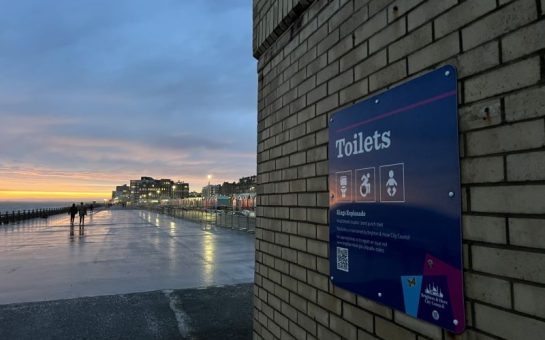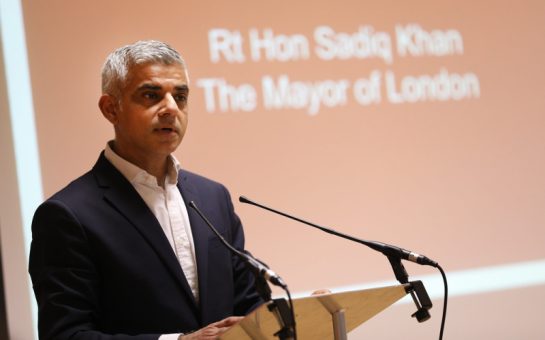Communities across south west London pulled together today in support of Time to Change’s Time to Talk Day.
Wimbledon interior design company Peldon Rose raised money and awareness for Time to Talk outside Wimbledon station.
 TALKING POINT: Peldon Rose staff spent the day spreading the word
TALKING POINT: Peldon Rose staff spent the day spreading the word
The company also played their part in helping to improve mental health by introducing a five-point plan of natural light, colour selection, greenery, relaxing areas and exercise to help counter mental health problems.
Read our tips on reducing workplace stress with clever office design for #TimeToTalk day: https://t.co/lP6LmXkKWd pic.twitter.com/bqXT5DoZvy
— Peldon Rose (@PeldonRose) February 4, 2016
Kathleen Miles, director of fundraising at mental health charity Mind, said: “Lighting, temperature and noise levels all affect our wellbeing and, as such, employees are more likely to perform at their best in ambient workspaces, with lots of natural light and ventilation.
“As well as paying attention to the physical space, creating mentally healthy workplaces also involves promoting wellbeing for staff, tackling the causes of work-related stress and mental health problems and supporting staff experiencing mental health problems.”
Tooting staged the inaugural ‘SW Coffee Morning’, which saw attendees take part in a walk on Tooting Bec Common followed by a hot drink at The Imperial Durbar.
The event was organised by 30-year-old Mark Schueler, who has suffered from severe clinical depression for 18 months, but felt that exercise had helped improve his wellbeing.
Time to Talk Day first launched in 2014 in a bid to end the stigma surrounding mental illness, funded by the Department of Health, Big Lottery and Comic Relief.
Tooting MP and Labour Mayoral candidate Sadiq Khan tweeted his support for the mental health campaign.
#timetotalk day is important for ending taboo and ensuring those with mental health problems have support they need. pic.twitter.com/2mp6xxYZYg
— Sadiq Khan (@SadiqKhan) February 4, 2016
One in four adults and one in ten children will experience a mental health issue each year, which costs £70bn every 12 months in the UK, so Time to Change are encouraging people to talk and break the silence surrounding mental health.
Time to Change undertook research into mental health last year, finding that nearly 90% of people with mental health problems have experienced stigma or discrimination.
Of more than 7,000 people questioned, 64% said they felt isolated, 61% said they felt worthless and 60% said they felt ashamed as a result of the stigma and discrimination they had faced, while 68% felt judged.
Images courtesy of Peldon Rose, with thanks




